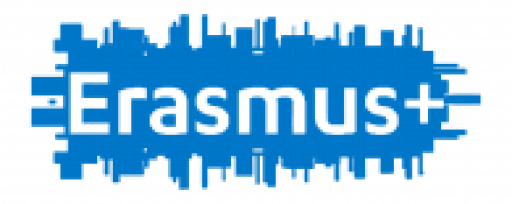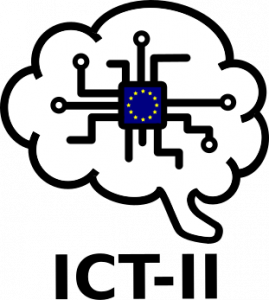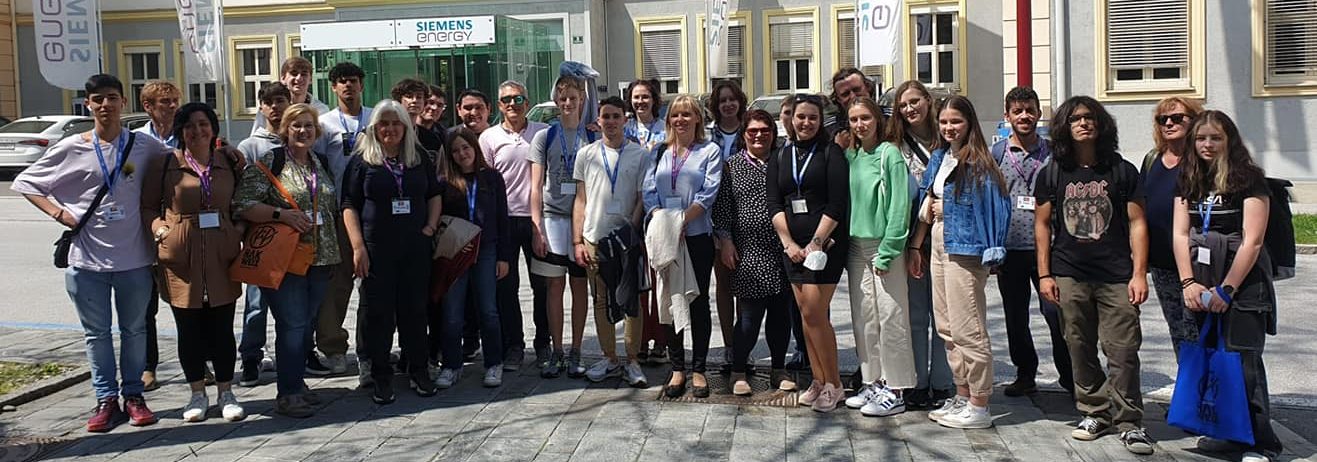Since the completion of the first project, it has been clear there is a substantial need for innovation in our educational systems regarding ICT skills, which can improve digital competences of students, international cooperation among teachers and students, and combat early school leaving, and thus improve the quality of secondary education. Consequently, we decided to focus on open education and innovative practices in a digital era as the key priority. The project results are directly and indirectly linked to the project priority, namely open education and innovative practices in a digital era.
The main aims of the “International ICT Competitions II for Increasing the Quality of Secondary Education” have been successfully met and the partnership produced the results in terms of practical results and life-long competences as follows:
FIVE INTERNATIONAL SHORT-TERM EXCHANGES OF STUDENTS – we organized and implemented five international meetings in physical and virtual form, including the preparatory process: learning new ICT skills and terminology with the focus on the future of IT technologies such as 3D printing and modelling, school round and international competitions in international groups, sports activities and social, civic and intercultural media literacy activities. As a result, 72,15% of the students feel more motivated to continue their learning in the use of computer skills and more than half (61%) believe they have improved their skills after having used them in the project.
PROJECT WEBPAGE – a common sustainable webpage was created in order to make the project visible during and after its implementation with information about the partners, project activities, and final results.
LESSON PLANS FOR ICT TRAINING TASKS FOR ICT TEACHERS – we additionally produced 5 lesson plans for ICT training tasks for ICT tasks, which are a complementary part of the brochure, and can be used in introducing ICT skills in other schools
ERASMUS+ CORNERS AND ERASMUS DAY– partner schools have created Erasmus+ corner on the premises of schools with all the information, results of competitions, photos of international meeting for students and teachers. Simultaneously, information was available on school websites.
IMPROVING COMMUNICATION SKILLS IN FOREIGN LANGUAGES AND BROADENING THE VOCABULARY OF PROFESSIONAL ENGLISH – according to the evaluation results after each LTAA around 80% of the students affirm that they were able to communicate to others in English easily, as well as improve their English level and are motivated to learn or improve other foreign languages thanks to this experience. While acquiring new ICT skills, the students also learnt and practiced new vocabulary related to ICT.
THE USE OF SPORTS ACTIVITIES – students and teachers have experienced a variety of sports acitivies during each LTTA like: canoeing, hiking, playing boccia, dance workshops, bowling, which all served as team building activities as well as icebraking and interpersonal activities.
ICT SKILLS 2 BROCHURE
We created new learning materials, namely 10 new examples for school and international competitions in vector image editing, text and image editing, the use of data in spread sheets, presentations and Pixilart and 3D design, which are part of a brochure available for further use in school curricula of partner and European schools, and are translated in all 5 national languages. A part of the brochure is also a glossary of most frequent ICT terms.
We additionally produced 5 lesson plans for ICT training tasks for ICT classes, which are a complementary part of the brochure, and can be used in introducing ICT skills in students from aged 15 – 18.
Download the brochure:
Comment the brochure, tasks or let us know about the results of the tasks:



